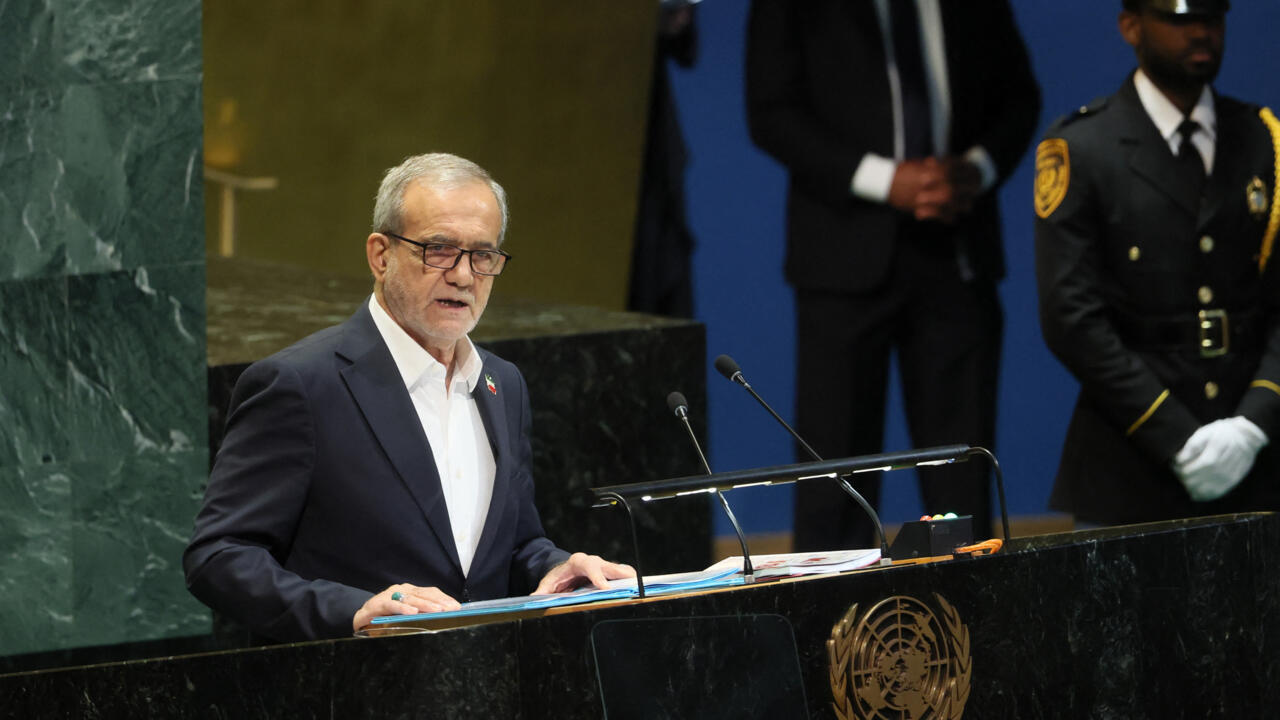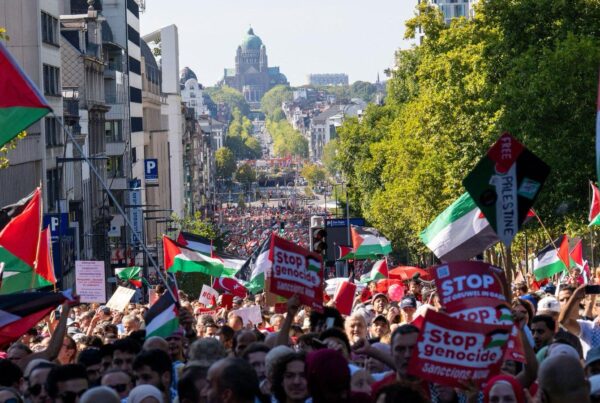Iranian President Masoud Pezeshkian declared before the United Nations General Assembly that his country will never seek to build a nuclear bomb. His statement drew global attention as it came just days before Europe’s deadline to decide on whether to reimpose United Nations sanctions against Tehran. At the same time, the United States sent a signal of openness to dialogue, raising hopes of a potential easing of long-standing nuclear tensions.
Diplomatic Signals at the UN Stage
Pezeshkian’s speech in New York was closely watched. He emphasized that Iran’s nuclear program is designed for peaceful purposes and rejected Western accusations that Tehran is seeking nuclear weapons. According to him, pressure and sanctions only deepen mistrust instead of paving the way for diplomacy.
Just hours later, U.S. Special Envoy for the Middle East Steve Witkoff stated that Washington had no desire to harm Iran. He added that the U.S. is engaged in talks with Tehran through limited diplomatic channels. This message was seen as a narrow opening to calm a conflict that has repeatedly led to deadlock.
Iran’s Presidential Remarks
Pezeshkian insisted that Iran does not need a nuclear bomb to safeguard its sovereignty. He cited Supreme Leader Ayatollah Ali Khamenei’s fatwa prohibiting nuclear weapons. In his view, this decree proves Iran’s commitment to moral and religious principles rather than a political maneuver.
In the same address, he accused the United States of betraying diplomacy, referencing the collapse of the 2015 nuclear deal after Washington’s withdrawal in 2018. That decision, he argued, destroyed trust and left a deep scar in bilateral relations.
U.S. Response
Envoy Witkoff sought to de-escalate with relatively conciliatory language. He said diplomacy is the only way forward and that Washington is willing to talk if Iran demonstrates seriousness. However, he stressed that Iran must meet its international obligations, particularly regarding inspections by the International Atomic Energy Agency (IAEA).
This response was seen as a balancing act. On one hand, Washington wants to pressure Iran into compliance with international rules. On the other, President Joe Biden’s administration does not want Iran’s nuclear file to spark new instability in an already volatile Middle East.
UN Sanctions Threat and Europe’s Role
Beyond the U.S.–Iran tug of war, attention now turns to European allies. Britain, France, and Germany, known as the E3, have triggered the snapback mechanism to restore UN sanctions against Iran. The deadline falls on September 27, 2025, only days after Pezeshkian’s speech.
If snapback takes effect, Iran will once again face sweeping international restrictions, including an arms embargo, asset freezes, and bans on sensitive trade. The move could have a major impact on Iran’s already struggling economy.
Europe’s Position
European diplomats have stated they are leaving room for negotiations. The snapback could be postponed for six months if Iran grants full access to international inspections and addresses concerns about enriched uranium stockpiles. This offer is seen as a compromise to preserve diplomacy, although the chances are slim.
Some European officials even said only “a matter of hours” remain for Iran to act if it wants to avoid sanctions. Their remarks underline how limited the diplomatic space has become.
Potential Impact of Sanctions
If sanctions are restored, Iran’s economy will face deeper isolation. An arms embargo would block Tehran from strengthening its defense through international markets. Travel bans would also limit diplomatic outreach by Iranian officials. On top of that, the country’s vital oil market could face even greater pressure.
Still, Tehran has a long history of surviving sanctions. Analysts believe Iran may continue to rely on trade ties with Russia, China, and other non-Western partners. Even so, the long-term consequences for its economy and political stability remain severe.
Roots of Iran’s Nuclear Dispute
Tensions over Iran’s nuclear program are not new. Since the early 2000s, Western governments have suspected Tehran of pursuing technologies that could be used for weapons. Iran has repeatedly denied the allegations, insisting its nuclear program is for energy and medical research.
The 2015 nuclear agreement, known as the Joint Comprehensive Plan of Action (JCPOA), briefly offered hope. Iran agreed to curb uranium enrichment in exchange for sanctions relief. But after the U.S. withdrawal in 2018, the deal unraveled, and Tehran resumed enrichment, sparking global concern.
Role of the Supreme Leader
Ayatollah Ali Khamenei holds ultimate authority over Iran’s foreign and nuclear policy. He has repeatedly declared that Iran will not bow to Western pressure. His fatwa against nuclear weapons is still cited as a moral foundation, but skepticism abroad remains strong.
Khamenei also insists that diplomacy with the United States will not succeed if built on threats. This view narrows negotiating space, as Tehran sees sanctions more as coercion than as an incentive.
Analysts’ Views
Observers argue Pezeshkian’s UN statement was more symbolic than a real policy shift. While the rhetoric is conciliatory, technical activities on the ground remain a source of alarm. IAEA data shows Iran possesses enough enriched uranium to raise concerns, though this does not automatically mean it is building weapons.
At the same time, analysts highlight the importance of Washington’s signals. Witkoff’s remarks are seen as an effort to open a small diplomatic window. Yet the prospects for success remain slim, given the deep mistrust built over decades.
Pezeshkian’s statement at the UN injected new energy into international diplomacy, but challenges on the ground remain daunting. With the UN sanctions snapback deadline looming, time is running out. Whether Tehran’s pledge and Washington’s cautious openness can truly avert renewed isolation remains uncertain. Stay with Olam News for continued updates and in-depth analysis on Iran’s nuclear issue and the shifting geopolitics of the Middle East.






